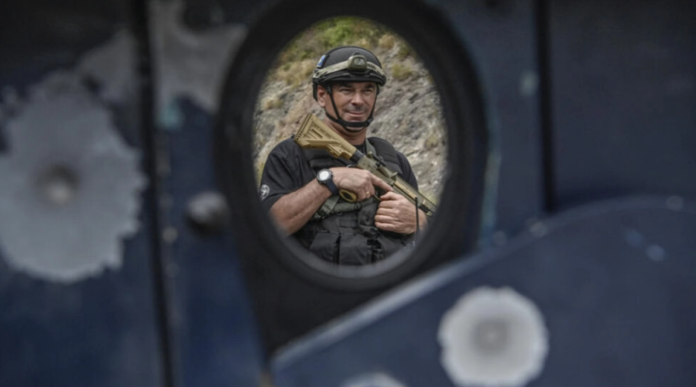EU leaders on Thursday failed to convince Kosovo and Serbia to make a breakthrough in the protracted push to normalise ties between the two Balkan neighbours, according to France24.
Kosovan Prime Minister Albin Kurti and Serbian President Aleksandar Vucic held separate talks with top EU officials and the leaders of France, Germany and Italy in Brussels.
EU foreign policy chief Josep Borrell said a proposal was put on the table to overcome a key stumbling block on establishing an association of municipalities of Serbian majority in the north of Kosovo.
“Unhappily, the parties were not ready to agree on that without preconditions that were unacceptable to the other party,” Borrell said. „We will continue insisting and working in order to get an agreement,” he added.
The two Balkan leaders blamed each other for the failure of the talks.
“Despite this generous offer by Prime Minister Kurti, the President of Serbia, Vucic, has refused to sign an agreement with Kosovo,” Kurti’s office said.
Vucic in turn said he was “ready to sign whatever you want except Kosovo’s presence in the UN and the issue of Kosovo’s independence”.
Brussels has been trying for years to resolve the long-running dispute between Balkan neighbours that has soured relations since their war more than two decades ago.
The EU believed it had broken the logjam by hammering out a plan to normalise ties in March, but since then there has been no progress.
Kosovo had insisted it wants Serbia to make the first move by taking steps towards officially recognising its independence. Belgrade wanted progress first on the deal to create an association of 10 Serb-majority municipalities in Kosovo.
Rancour between Pristina and Belgrade surged after a police officer was killed last month in an ambush in Kosovo’s restive north, allegedly by a paramilitary unit made up of Kosovo Serbs.
That followed months of increased tensions in northern Kosovo after protests among ethnic Serbs at Pristina’s decision to install mayors in four predominantly Serb northern municipalities.
Animosity between Kosovo and Serbia has persisted since a war between Serbian forces and ethnic Albanian insurgents in the late 1990s that drew NATO intervention against Belgrade.
Kosovo, which counts 120,000 Serbs among its 1.8 million people, declared its independence from Serbia in 2008, in a move Belgrade has never recognised.


